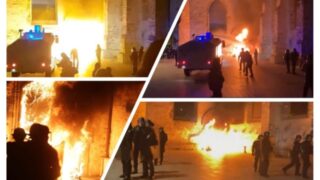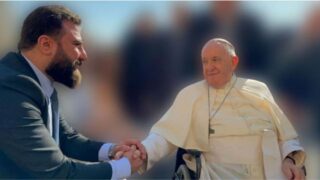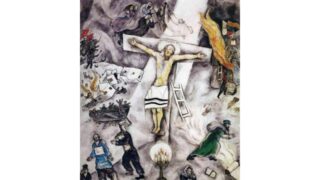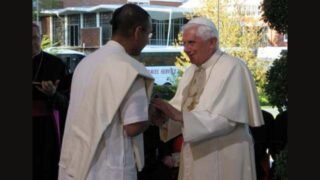The Pope’s silence on the case of Cardinal Zen did not persuade Beijing to accept the Vatican’s request not to proceed with a ceremony that violated the 2018 deal.
by Massimo Introvigne


Officially, the Vatican line, reaffirmed by Pope Francis himself, is that the Vatican-China deal of 2018 “is good,” is slowly producing its fruits, and renewing it twice in 2020 and 2022 was the right thing to do.
“Officially” is the operative word here. Because “unofficially” the Vatican is well aware that China manipulates the agreement for its own purposes, and breaches it when it deems it fit. Now, the cat is out of the bag.
Two events of importance for the Vatican-China deal happened within 24 hours from each other last week. In Hong Kong, on November 25, the former Bishop Cardinal Joseph Zen was found guilty for failing to register a humanitarian relief fund created to support the 2019 pro-democracy protesters. The 90-year-old Cardinal was sentenced to pay a fine of 4,000 Hong Kong dollars, little more than euro 500.
Many throughout the world criticized Pope Francis for keeping silent on the issue, and the Catholic Diocese of Hong Kong for refusing any comment, speculating whether this was due to the old Cardinal’s outspoken criticism of the Pope (not on the Hong Kong issue only) or to clauses of the 2018 deal with China, whose text remains secret. According to Bitter Winter’s correspondent in Hong Kong, however, an anonymous source from the Diocese commented unofficially that the Vatican did work behind the scene to obtain a lenient sentence for Zen.
Others told Bitter Winter that the Vatican’s deafening silence was connected with negotiations to persuade the CCP to cancel or delay the installation ceremony of Bishop Giovanni Peng Weizhao of Yujiang (Jiangxi province) as Auxiliary Bishop of Jiangxi, something the Holy See desperately tried to avoid.
Why the ceremony was so disturbing for the Vatican needs some explanation. The 2018 agreement is secret, but it is believed it regulates the administration of the Catholic dioceses and the appointment of bishops. The latter are still selected by the CCP but are officially appointed by the Vatican. The problem in the Jiangxi province is that the Vatican has traditionally organized the local Catholics into five dioceses, while the CCP-controlled Patriotic Church had only one diocese, called simply the Diocese of Jiangxi, whose bishop at the time the 2018 agreement was signed was Li Suguang.
Mgr. Peng Weizhao was the bishop of Yujiang, one of the dioceses recognized by the Vatican but not by the Patriotic Church. He was appointed by Pope Francis in April 2014, promptly arrested by the Chinese authorities, and kept in jail until November of that year. He was known as being critical of the CCP, and was kept under strict surveillance.
Recently, however, it was announced that he had agreed to join the Patriotic Church and would be installed by Bishop Li Suguang as auxiliary bishop for the Diocese of Jiangxi. As we have seen, the existence of this diocese is not recognized by the Holy See, and appointing an “auxiliary bishop” for it could only have happened without its authorization.
The CCP, however, interprets the 2018 agreement to the effect that the consent of the Holy See is only needed for the consecration of new bishops, not for moving those the Vatican has already recognized (or created before 2018, as in the case of Bishop Peng) from one diocese to another.
The Vatican interprets the agreement differently, and begged the Chinese authorities not to proceed with the ceremony, which did take place on November 24, with Bishop Peng solemnly promising of “upholding the principle of independent and self-managed churches” (the old formula of separation from Rome) and “guiding Catholics to adapt themselves to a socialist society.”
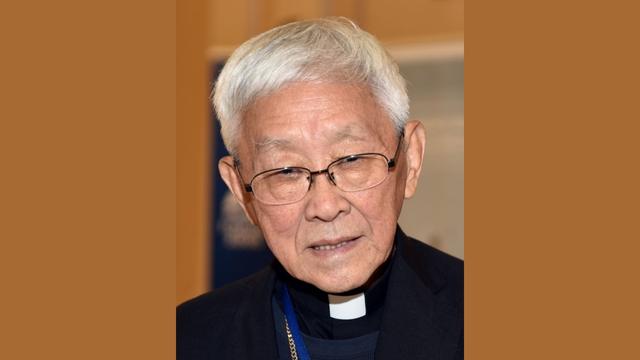

This happened on November 24, and Zen was sentenced on November 25. If, as some suggested, there was a bargain exchanging Rome’s silence on Zen with Beijing’s agreement not to proceed with the Peng ceremony, in theory there was still time for the Vatican to claim that the CCP had not kept its promises, and speak out about the Hong Kong cardinal. However, as confirmed recently after the Russian invasion of Ukraine, Vatican’s proverbial caution means that it takes it several days and even several weeks to change a stand on political issues.
More generally, continuing to claim that the schism of the Patriotic Church has been healed and that now all Chinese Catholics are with Rome, although they should be with the CCP as well, remains more important for the Vatican than individual incidents.
Accordingly, the Holy See has published a press release acknowledging “with surprise and regret” that Beijing has breached the 2008 agreement through the Peng ceremony, but reaffirming Vatican’s “complete willingness” to unilaterally continue respecting it.
“It was with surprise and regret, the press release said, that the Holy See learned of the news of the ‘installation ceremony’ that took place on 24 November in Nanchang, of H.E. Bishop Giovanni Peng Weizhao, Bishop of Yujiang (Jiangxi Province), as ‘Auxiliary Bishop of Jiangxi,’ a diocese not recognized by the Holy See. Such an event, in fact, has not taken place in conformity with the spirit of dialogue that exists between the Vatican parties and the Chinese parties and what has been stipulated in the Provisional Agreement on the Appointment of Bishops of 22 September 2018. In addition, the civil recognition of Bishop Peng was preceded, according to reports received, by prolonged and intense pressure by the local Authorities. The Holy See hopes that similar episodes will not be repeated, is awaiting the appropriate communication about the matter from the Authorities, and reaffirms its complete willingness to continue the respectful dialogue concerning all of the matters of common interest.”



